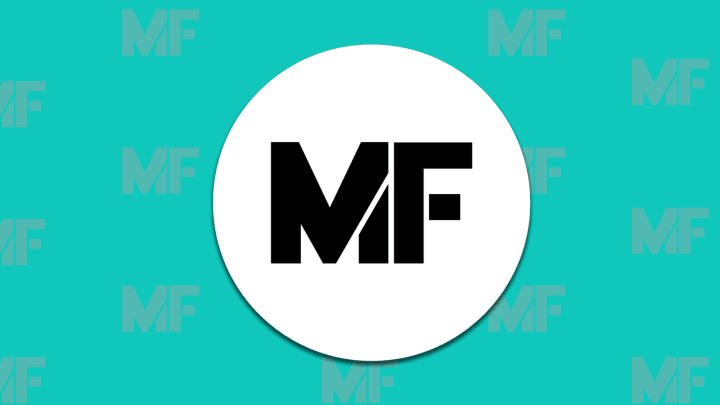This month marks my 6-year anniversary blogging for mental_floss. It also marks mentalfloss.com's 6-year anniversary in the blogosphere. To celebrate the more than 2,000 daily posts, I'll be republishing some of my favorite posts from these last half-dozen years, starting today, running to the end of the month. Hope you enjoy this stroll down memory lane...
(Originally published on Feb. 3, 2009) 1. Alfred Mosher Butts Best known for: inventing Scrabble (first called Lexiko, and then later, Criss Cross Words)But did you know: We owe our Scrabble addictions to the Depression? Butts was an architect who suddenly found himself unemployed. With nothing but time on his hands, he set about to invent a board game (he must have been, er, bored, without work).So how bad was his spelling? By his own admission, Butts says he wasn't a good speller, and was delighted when his Scrabble score hit 300. Apparently his wife Nina, a former school teacher, usually outplayed him.
2. William Faulkner Best known for: his stream of consciousness technique in such celebrated novels as his 1929 classic, The Sound and the Fury But did you know: the title of the novel comes from a Macbeth soliloquy? "It is a tale told by an idiot, full of sound and fury, signifying nothing."So how bad was his spelling? One of Faulkner's editors at Random House, Albert Erskine, said, "I know that he did not wish to have carried through from typescript to printed book his typing mistakes, misspellings (as opposed to coinages), faulty punctuation and accidental repetition. He depended on my predecessors, and later on me, to point out such errors and correct them; and though we never achieved anything like a perfect performance, we tried."
3. F. Scott Fitzgerald Best known for: The Great GatsbyBut did you know: The novel didn't sell well during Fitzgerald's lifetime? (fewer than 25,000 copies)So how bad was his spelling? Preeminent American literary critic Edmund Wilson described This Side of Paradise as "one of the most illiterate books of any merit ever published."
4. Ernest Hemingway Best known for: those great stoic characters, like Robert Jordan in the 1940 novel For Whom the Bell TollsBut did you know: Hemingway was decorated as a hero after being injured during WWI? And served as a war correspondent in both the Spanish Civil War and WWII? (in case you ever wondered how he got all those Spanish Civil War details down so well in For Whom the Bell Tolls)So how bad was his spelling? Whenever his newspaper editors complained about it, he'd retort, "Well, that's what you're hired to correct!"
5. John Keats Best known for: the 1820 poem, Ode on a Grecian UrnBut did you know: tuberculosis took the young Keats in 1821, at only 26 years of age? The same disease had already claimed his mother and younger brother.So how bad was his spelling? In a letter to his great love Fanny Brawne, Keats spelled the color purple, purplue. This generated a longer conversation between the two, as Keats tried to save face by suggesting he'd meant to coin a new portmanteaux - a cross between purple and blue.
6. Jane Austen Best known for: her elegant novels, like Pride and Prejudice, published in 1813But did you know: she'd actually written the novel a good 15 years earlier, under the title First Impressions, but the publisher rejected it? (Let this be a lesson to all ye aspiring writers!) Then, after Sense and Sensibility was published in 1811, there was interest in the older story, which, after some editing, was eventually published with the title we know today.So how bad was her spelling? She once misspelled one of her teenage works as "Love and Freindship" and is infamously known to have spelt scissors as scissars.
Check out all past Weekend Word Wraps>>
